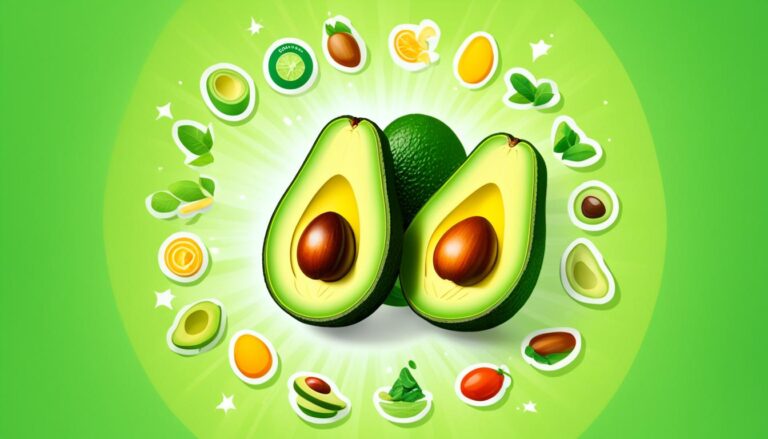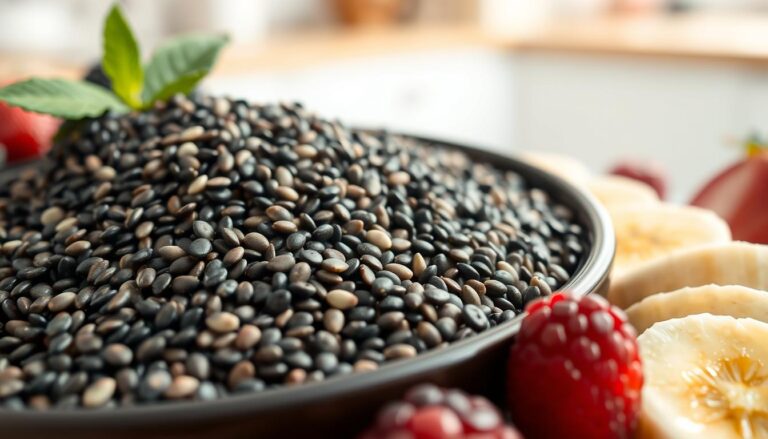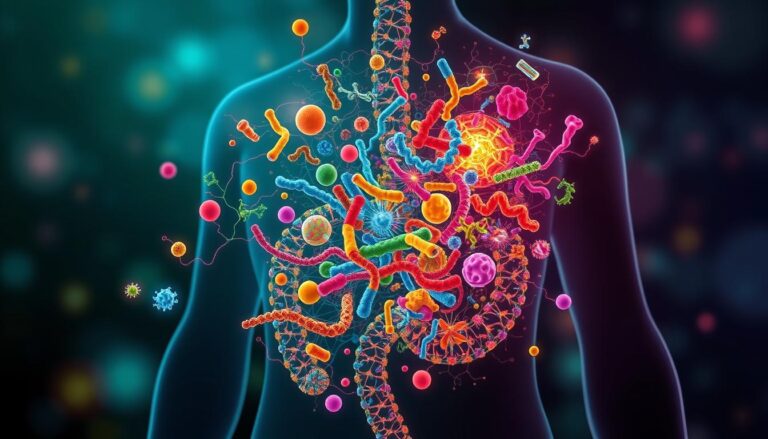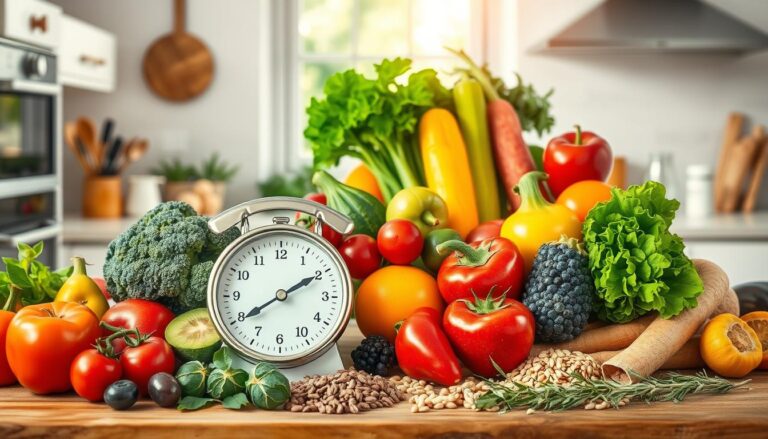When it comes to weight loss, certain foods often get a bad rap. But what if some of these so-called bad foods could actually support your goals? It might sound surprising, but research shows that nutrient-dense options can play a key role in managing body weight.
Protein and fiber, found in many misunderstood foods, are essential for regulating appetite and boosting metabolism. Instead of cutting out entire food groups, a balanced diet with variety can be more effective than restrictive eating patterns.
According to EATINGWELL, foods like full-fat dairy, whole grains, and even popcorn can be part of a healthy weight loss plan. Dietitian Sarah Pflugradt confirms that these foods, when consumed mindfully, can contribute to long-term success.
Key Takeaways
- Some bad foods can aid in weight loss due to their nutrient density.
- Protein and fiber help regulate appetite and improve metabolism.
- A varied diet is more sustainable than restrictive eating patterns.
- Full-fat dairy, whole grains, and popcorn can support weight management.
- Expert guidance ensures these foods fit into a balanced diet.
Introduction: The Surprising Truth About ‘Bad’ Foods and Weight Loss
The idea that certain foods are bad for weight loss is often misleading. Nutrition is rarely black and white, and labeling foods as good or bad oversimplifies their role in a balanced diet. Instead, calorie balance and nutrient timing play a more significant role in managing body weight over time.

According to EATINGWELL, No single food causes weight gain or loss fluctuations result from overall dietary patterns over time. This highlights the importance of focusing on the bigger picture rather than demonizing specific items. For example, protein and fiber-rich foods can enhance satiety, making it easier to maintain a calorie deficit without feeling deprived.
Protein and fiber are key to regulating appetite and improving metabolism, which supports sustainable weight management.
Common misconceptions about dairy fat and carbohydrates often lead to unnecessary restrictions. Full-fat dairy, for instance, can be part of a healthy diet when consumed in moderation. Similarly, carb-rich grains provide essential energy and nutrients that fuel physical activity and metabolic processes.
Here’s a quick comparison of how these misunderstood foods can fit into a weight loss plan:
| Food | Benefit |
|---|---|
| Full-Fat Dairy | Enhances satiety and provides essential nutrients |
| Whole Grains | Supports energy levels and digestive health |
| Popcorn | Low-calorie snack that keeps you full |
By rethinking these so-called bad foods, you can create a more sustainable and enjoyable approach to weight loss. The key is to focus on balance, moderation, and the overall quality of your diet.
1. Full-Fat Dairy: A Misunderstood Ally in Weight Loss
Full-fat dairy has long been misunderstood in the context of weight management. While many avoid it due to its calorie and fat content, recent research suggests it can be a valuable part of a balanced diet. Contrary to popular belief, full-fat dairy doesn’t necessarily lead to weight gain or increase the risk of heart disease.
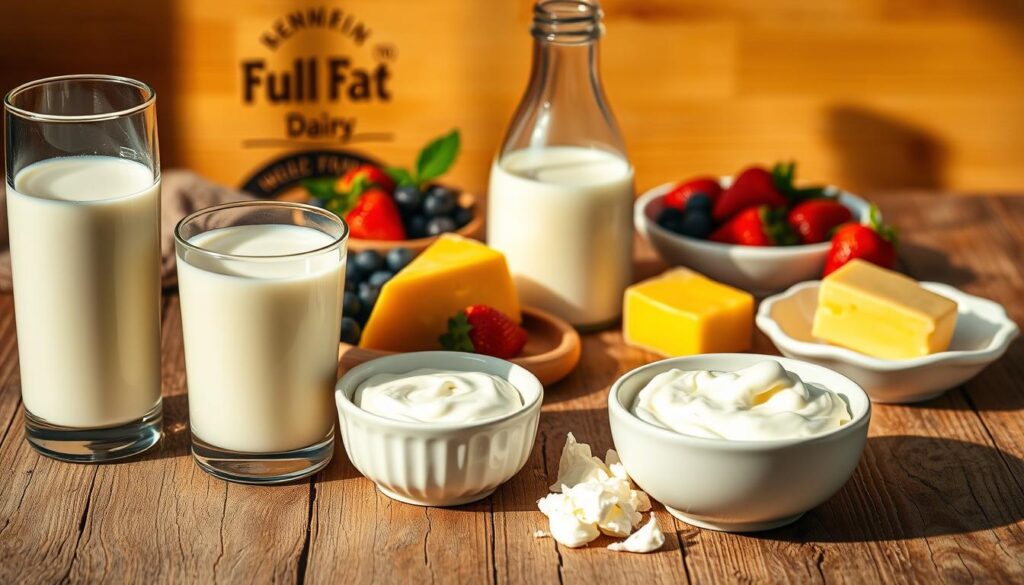
Studies from 2023 show no significant link between full-fat dairy consumption and obesity. In fact, fermented dairy products like yogurt and cheese may even protect against cardiovascular disease and type 2 diabetes. This challenges the notion that low-fat options are always the healthier choice.
Why Full-Fat Dairy Isn’t the Enemy
Whole milk, for example, contains 4.5 grams of saturated fat per 8-ounce serving, compared to 1.4 grams in 1% milk. While this may seem high, the additional fat can enhance satiety, helping you feel fuller for longer. This can reduce overall calorie intake and support weight management.
Additionally, full-fat dairy is rich in essential nutrients like calcium and protein, which are crucial for maintaining muscle mass and bone health. These benefits make it a more nutrient-dense option than its low-fat counterparts.
How to Incorporate Full-Fat Dairy into Your Diet
To enjoy the benefits of full-fat dairy without overdoing it, consider these tips:
- Pair Greek yogurt with fresh berries for a balanced snack.
- Enjoy cheese with whole-grain crackers for a satisfying treat.
- Use butter in moderation for cooking or spreading.
For those with lactose intolerance, aged cheeses or lactase-treated products can be excellent alternatives. By incorporating full-fat dairy mindfully, you can enjoy its benefits while supporting your weight management goals.
2. Carb-Rich Grains: Fueling Your Weight Loss Journey
Carbohydrates often get a bad reputation in weight loss discussions, but they can be a powerful tool when used correctly. A study found no significant difference in weight loss between low-carb and balanced-carb diets among overweight individuals. This highlights the importance of choosing the right types of carbs, such as whole grains, which are packed with fiber and essential nutrients.
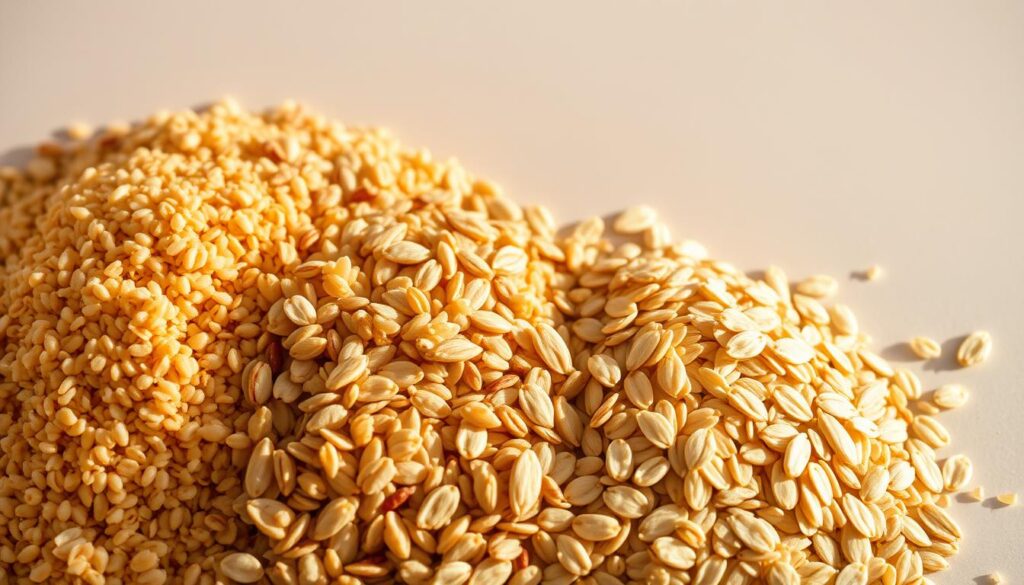
The Role of Carbohydrates in Weight Management
Carbohydrates are the body’s primary energy source, and cutting them out entirely can lead to fatigue and cravings. Whole grains like quinoa, oats, and brown rice provide 3-5 grams of fiber per serving, which helps regulate appetite and keeps you feeling full longer. This makes them an excellent choice for sustainable weight management.
Additionally, the thermic effect of digesting complex carbs means your body burns more calories during digestion compared to simple sugars. This process supports metabolic health and can aid in maintaining a healthy weight.
Balancing Carbs for Optimal Results
Not all carbs are created equal. For example, quinoa has a lower glycemic index than white rice, meaning it causes a slower rise in blood sugar levels. This makes it a better option for managing hunger and energy throughout the day.
Here are some strategies to incorporate carb-rich grains into your diet effectively:
- Include whole grains in pre-workout meals to fuel your exercise.
- Pair grains with lean protein and vegetables for balanced meals.
- Experiment with cooking methods like steaming or boiling to preserve nutrients.
Debunking the carb window myth, recent research shows that insulin response isn’t solely tied to meal timing. Instead, focus on portion control and nutrient density to maximize the benefits of carb-rich foods.
Whole grains are a cornerstone of a balanced diet, providing essential energy and nutrients for overall health.
By understanding the role of carbohydrates and making informed choices, you can enjoy carb-rich grains as part of a successful weight loss plan.
3. Eggs: A Protein-Packed Weight Loss Superfood
Eggs have been a staple in diets worldwide, but their role in weight loss is often misunderstood. Packed with protein and essential nutrients, they can be a powerful ally in managing body weight. Despite their reputation, recent studies show that eggs don’t negatively impact cholesterol levels or increase the risk of heart disease.
Debunking the Cholesterol Myth
For years, eggs were blamed for raising cholesterol levels. However, 32 clinical trials found no significant impact on body weight or heart health from regular egg consumption. The USDA’s updated dietary guidelines now recommend eggs as part of a balanced diet.
Whole eggs are nutrient-dense, containing 70 calories and 6 grams of protein each. They also provide essential vitamins like B12 and choline, which support brain function and metabolism.
Eggs and Satiety: Staying Full Longer
One of the biggest benefits of eggs is their ability to keep you full. An Australian study found that participants who ate eggs for breakfast consumed 22% fewer calories at lunch. This makes them an excellent choice for those looking to manage their body weight.
Here are some practical ways to include eggs in your diet:
- Prepare veggie frittatas for a protein-rich meal.
- Keep hard-boiled eggs on hand for a quick snack.
- Pair eggs with whole-grain toast for a balanced breakfast.
For individuals with genetic factors affecting cholesterol metabolism, such as APOE4 carriers, moderation is key. By understanding the science behind eggs, you can enjoy their benefits without worry.
4. Potatoes: The Starchy Vegetable That Helps You Slim Down
Potatoes, often labeled as a starchy villain, can surprisingly support weight loss goals when prepared correctly. Their high fiber and resistant starch content make them a valuable addition to a balanced diet. When cooked and cooled, potatoes undergo a process called retrogradation, which increases their resistant starch content by 50%.

Resistant Starch and Weight Loss
Resistant starch acts like fiber in the body, passing through the digestive system without being fully absorbed. This process helps regulate blood sugar levels and promotes a feeling of fullness, reducing overall calorie intake. A study found that consuming resistant starch can improve gut health by acting as a prebiotic, feeding beneficial gut bacteria.
Here’s a comparison of the glycemic impact of different potato preparations:
| Preparation Method | Glycemic Index |
|---|---|
| Mashed Potatoes | High |
| Roasted Potatoes | Medium |
| Chilled Potatoes | Low |
Pairing Potatoes with Protein for Maximum Benefits
Combining potatoes with protein can enhance their weight loss benefits. A clinical trial showed that potato-protein combos reduced hunger scores by 40%, making them an excellent choice for satisfying meals. For example, a chilled potato salad with Greek yogurt dressing provides a balanced mix of carbs, protein, and healthy fats.
Here are some tips to enjoy potatoes while managing weight:
- Opt for roasted or chilled potatoes to maximize resistant starch content.
- Pair potatoes with lean proteins like chicken or tofu for a filling meal.
- Experiment with herbs and spices to add flavor without extra calories.
For those with nightshade sensitivity, peeling and thoroughly cooking potatoes can reduce potential irritants. By understanding their nutritional benefits, you can make potatoes a part of your weight management strategy.
5. Popcorn: A Low-Calorie Snack That Keeps You Full
Popcorn, often seen as a guilty pleasure, can be a smart choice for weight management. This crunchy snack is low in calories and high in fiber, making it a satisfying option for those looking to manage their diet.
The Nutritional Benefits of Popcorn
Air-popped popcorn contains just 30 calories per cup, compared to 150 calories in a similar serving of potato chips. It’s also a good source of fiber, which helps regulate digestion and keeps you feeling full longer. A study found that popcorn consumers reported 25% lower hunger scores after snacking.
Here’s a quick comparison of popcorn and potato chips:
| Snack | Calories per Cup | Fiber per Cup |
|---|---|---|
| Air-Popped Popcorn | 30 | 1g |
| Potato Chips | 150 | 0.5g |
Choosing the Right Popcorn for Weight Loss
Not all popcorn is created equal. Microwave popcorn often contains added fat and sodium, while stovetop popping preserves more nutrients. For a healthier option, try air-popped popcorn seasoned with nutritional yeast or smoked paprika.
Portion control is key. Use hand-measure equivalents to avoid overeating. For example, one serving is about three cups of popped popcorn. Avoid movie theater popcorn, which can contain over 1,200 calories per bucket.
Here are some tips to enjoy popcorn wisely:
- Opt for air-popped or stovetop methods to retain nutrients.
- Experiment with healthy seasonings like herbs and spices.
- Measure portions to stay within your calorie goals.
By making smart choices, popcorn can be a delicious and effective part of your weight management plan.
Expert Insights: What Dietitians Say About These ‘Bad’ Foods
Nutrition experts are shedding light on the benefits of foods once considered unhealthy. According to dietitian Sarah Pflugradt, Include variety rather than restriction for sustainable results. This approach emphasizes balance and moderation, which are key to long-term health.
A Harvard study highlights the cardiovascular benefits of fermented dairy products like yogurt and kefir. These foods can reduce the risk of heart disease and type 2 diabetes, challenging the notion that all dairy is harmful.
Julia Zumpano from the Cleveland Clinic notes, Cottage cheese is an excellent source of protein and calcium, making it a smart choice for weight management. Its high protein content helps regulate appetite and supports muscle maintenance.
Rush University emphasizes the role of fiber in promoting satiety. Whole grains, fruits, and vegetables are essential for maintaining a balanced diet and preventing overeating.
Emory University warns against flavored yogurts, which often contain added sugars. Opting for plain yogurt and adding fresh fruit can provide the same benefits without the extra calories.
Harvard’s research on mushrooms reveals their umami flavor can enhance meals without adding unhealthy ingredients. This makes them a versatile addition to any diet.
Toronto University’s findings on pulses like lentils and chickpeas show their ability to improve gut health and support weight management. These nutrient-dense foods are a valuable part of a balanced eating plan.
By incorporating expert advice and research-backed strategies, you can enjoy a variety of foods while supporting your health goals.
Common Myths About Weight Loss Foods
Many weight loss myths surround everyday foods, leading to confusion. From negative calorie claims to misconceptions about fats, these myths can derail your diet goals. Let’s debunk some of the most common ones.
One popular myth is that certain foods burn more calories than they contain. While thermogenesis does occur during digestion, the effect is minimal. For example, celery might require energy to digest, but it doesn’t create a calorie deficit significant enough for weight loss.
Another misconception involves low-fat products. Many of these items replace fat with added sugars, which can spike blood sugar levels. A study found that low-fat yogurt often contains more sugar than its full-fat counterpart, making it less healthy than advertised.
Glycemic index GI myths also abound. While some fruits have a higher GI, their fiber content slows sugar absorption. Bananas, for instance, are often avoided but provide essential nutrients and energy without causing blood sugar spikes.
Olive oil is another misunderstood food. Despite its high calorie density, it’s rich in healthy fats that support heart health. Using it in moderation can enhance meals without sabotaging your diet.
Finally, detox teas and metabolism-boosting supplements often promise quick results. However, these products can lead to dehydration and nutrient deficiencies. A balanced diet with whole foods like beans and vegetables is a safer, more effective approach.
| Myth | Reality |
|---|---|
| Negative Calorie Foods | Thermogenesis effect is minimal; no significant calorie deficit. |
| Low-Fat Products | Often contain added sugars, reducing their health benefits. |
| High-GI Fruits | Fiber content slows sugar absorption, making them healthy. |
| Olive Oil | Healthy fats support heart health despite calorie density. |
| Detox Teas | Can cause dehydration; whole foods are a better option. |
By understanding these myths, you can make informed choices and focus on a balanced, nutrient-rich diet for sustainable weight management.
Conclusion: Rethinking ‘Bad’ Foods for a Healthier You
Reevaluating certain foods can transform your approach to health and fitness. Full-fat dairy, carb-rich grains, and even popcorn offer unique benefits for weight loss. These foods are rich in protein and fiber, which help regulate appetite and support long-term goals.
Following MyPlate.gov guidelines, a balanced diet includes a variety of nutrient-dense options. For example, pairing whole grains with lean proteins can fuel your body while keeping you satisfied. A 7-day meal plan incorporating these foods ensures you stay on track without feeling deprived.
Sustainable habits are key to success. Focus on mindful eating and portion control rather than strict restrictions. As dietitian Sarah Pflugradt says, Nutrition is about patterns, not perfection. By embracing variety and balance, you can achieve your health and weight loss goals effectively.
